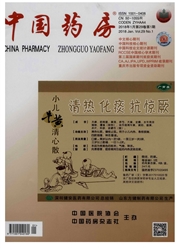

 中文摘要:
中文摘要:
目的:分析上海市实施国家基本药物制度对医药商业企业基层销售终端市场集中度的影响。方法:比较国家基本药物制度实施前、后即2010年下半年与2011年下半年基层销售终端市场中的医药商业企业数量和基层销售终端市场集中度。结果与结论:基层销售终端市场医药商业企业始终维持在20家,可见国家基本药物制度并未对医药商业企业产生挤出效应;2011年下半年市场份额排名前1位、前3位和前8位的企业累计市场份额(CR1、CR3和CR8)分别达到了31.75%、65.25%和90.77%,而2010年同期分别为29.41%、63.63%和87.43%,可见国家基本药物制度小幅度地提升了医药商业企业基层销售终端市场集中度。因此,需要采取更为有效的政策促进上海市医药商业企业的整合。
 英文摘要:
英文摘要:
OBJECTIVE: To analyze the effects of the implementation of national essential drug system (NEDS) on primary sales terminal market concentration ratio of pharmaceutical commercial enterprises in Shanghai. METHODS: The number and the market concentration ratio (CR) of pharmaceutical commercial enterprises in the primary sales terminal market in the second half of 2011 were compared to the second half of 2010. RESULTS & CONCLUSIONS: The number of the pharmaceutical commercial enterprises in the primary sales terminal market has been maintained at 20; NEDS did not show market crowding-out effect. CR1, CR3 and CR8 elevated to 31.75%, 65.25% and 90.77%, respectively in the second half of 2011, and CR1, CR3 and CR8 in 2010 was 29.41%, 63.63% and 87.43%; NEDS slightly promotes the primary sales terminal market CR of the pharmaceutical commercial enterprises. It is needed to take more effective policy to promote the integration of pharmaceutical commercial enterprises in Shanghai.
 同期刊论文项目
同期刊论文项目
 同项目期刊论文
同项目期刊论文
 期刊信息
期刊信息
